
 |
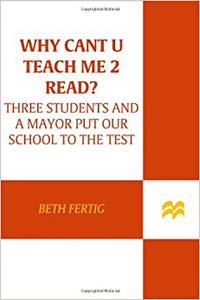 Beth Fertig, "Why cant U teach me 2 read?: Three Students and a Mayor Put Our Schools to the Test" English | 2009 | ISBN: 0374299056 | EPUB | pages: 368 | 0.4 mb Why cant U teach me 2 read? is a vivid, stirring, passionately told story of three students who fought for the right to learn to read, and won-only to discover that their efforts to learn to read had hardly begun. 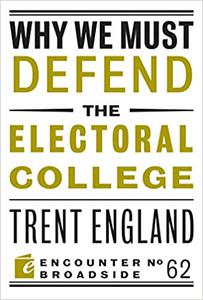 Trent England, "Why We Must Defend the Electoral College " English | ISBN: 1641771496 | 2020 | 40 pages | EPUB | 398 KB Is the Electoral College "racist" and a "scam" as Rep. Alexandria Ocasio-Cortez claims? Or was Alexander Hamilton right when he declared that "if it be not perfect, it is at least excellent"? In this Broadside, Trent England explains why we have the Electoral College, how it shapes American politics, and why preserving it is necessary to maintain our republican form of government. With an organized campaign trying to hijack the constitution's state-by-state system in favor of a direct election, now is the time for Americans to come to the defense of the Electoral College. 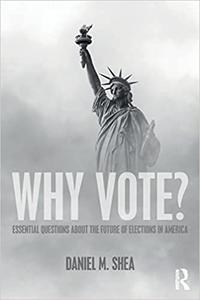 Daniel M. Shea, "Why Vote?: Essential Questions About the Future of Elections in America" English | ISBN: 113861792X | 2019 | 258 pages | EPUB | 540 KB For nearly 200 years, Americans have pinned the democratic character of their system on elections. In many ways, we have become an election-crazed nation, ever-hoping that the next grand contest or the next great candidate will save the day. But tectonic shifts abound - changes that are distorting the nature of the process. From the rise of fear-centered partisanship, new limits on voter access to the polls, the omnipotence of social media, declining standards of objectivity, Russian interference, the reemergence of the partisan press, the growing weight of elites and more, elections - our "grand democratic feasts" - are transforming before our eyes. We've reached a precarious intersection, and it is no stretch to say the future of the republic is at stake. 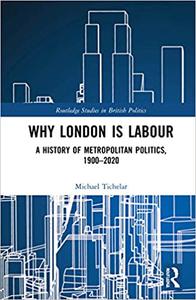 Michael Tichelar, "Why London is Labour " English | ISBN: 0367175231 | 2021 | 310 pages | EPUB | 755 KB This book answers the question why London has been a stronghold for the Labour Party for relatively long periods of the last century and continues to be so to this day to an extent that surprises contemporaries.  Alison Suen, "Why It's OK to Be a Slacker" English | ISBN: 0367338181 | 2021 | 216 pages | EPUB | 249 KB "Stop slacking off!" 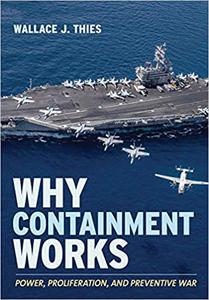 Wallace J. Thies, "Why Containment Works: Power, Proliferation, and Preventive War " English | ISBN: 150174948X | 2020 | 240 pages | EPUB | 625 KB Why Containment Works examines the conduct of American foreign policy during and after the Cold War through the lens of applied policy analysis. Wallace J. Thies argues that the Bush Doctrine after 2002 was a theory of victory―a coherent strategic view that tells a state how best to transform scarce resources into useful military assets, and how to employ those assets in conflicts. He contrasts prescriptions derived from the Bush Doctrine with an alternative theory of victory, one based on containment and deterrence, which US presidents employed for much of the Cold War period. There are, he suggests, multiple reasons for believing that containment was working well against Saddam Hussein's Iraq after the first Gulf War and that there was no need to invade Iraq in 2003. 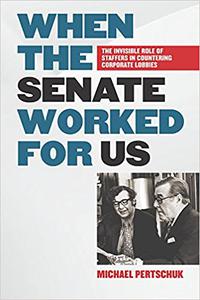 Michael Pertschuk, "When the Senate Worked for Us: The Invisible Role of Staffers in Countering Corporate Lobbies" English | ISBN: 0826521665 | 2017 | 232 pages | EPUB | 1045 KB Every politically sentient American knows that Congress has been dominated by special interests, and many people do not remember a time when Congress legislated in the public interest. In the 1960s and '70s, however, lobbyists were aggressive but were countered by progressive senators and representatives, as several books have documented. 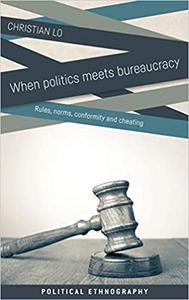 Christian Lo, "When politics meets bureaucracy: Rules, norms, conformity and cheating " English | ISBN: 1526136686 | 2021 | 208 pages | EPUB | 395 KB This book follows the perspectives of high-level municipal bureaucrats and local politician through a wide range of policy processes in two small Norwegian municipalities. Through this interdisciplinary approach, the book offers a novel perspective on central themes from the governance literature. Most of all, the ethnographic accounts of political and administrative practices are used to demonstrate how processes of hierarchical government and broader processes of governance become inextricably intertwined during policy processes, and how horizontal alignments can modify the hierarchal logic of bureaucratic structures. Lo draws on perspectives from political science, sociology and anthropology to understand the cultural and historical conditions that inform this intertwinement. This broad approach makes the book relevant for a wide audience of students and scholars interested in the inner workings of bureaucratic organisations.  Barbara O'Neal, "When We Believed in Mermaids: A Novel" English | 2019 | ISBN: 1542004527 | EPUB | pages: 352 | 0.6 mb An Amazon Charts, Washington Post, Wall Street Journal, and USA Today bestseller. 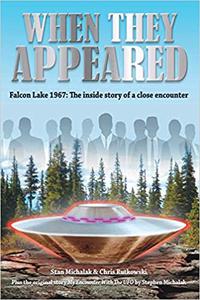 When They Appeared: Falcon Lake 1967: The Inside Story of a Close Encounter by Chris Rutkowski, Stan Michalak English | 2019 | ISBN: 1786770857 | 252 Pages | EPUB | 4.7 MB What happened in the Whiteshell Forest near Falcon Lake on May 20, 1967? For the first time in 50 years, the many facets of this astonishing tale finally come together. |